Bringing Global Goals to the Dinner Table
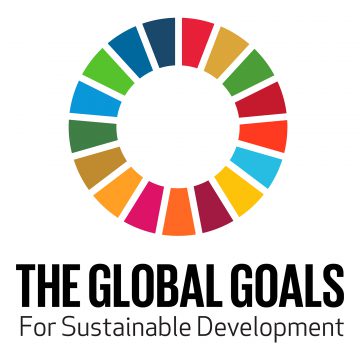 September 25, 2015 marks the official adoption of the UN’s Global Goals for Sustainable Development. The 17 goals are intended to give all participating countries a roadmap to follow for greater peace, prosperity and social justice over the course of the next 15 years. Their mutual acceptance by 193 world leaders is an ambitious plan to make the world a better place through unanimous agreement on what a “better world” should look like.
September 25, 2015 marks the official adoption of the UN’s Global Goals for Sustainable Development. The 17 goals are intended to give all participating countries a roadmap to follow for greater peace, prosperity and social justice over the course of the next 15 years. Their mutual acceptance by 193 world leaders is an ambitious plan to make the world a better place through unanimous agreement on what a “better world” should look like.
The Family Dinner Project supports a shared vision of a better world. But more than applauding the adopting nations for their commitment to a better world for all, we want to encourage families to use these goals as a way to envision a better world — right at their dinner tables.
Here are some conversation starters you might use to get your family talking about the Global Goals:
- No Poverty.
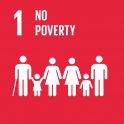 Ask:
Ask:
If you live in poverty, what are some things that you might not have anymore?
About 20% of the world’s people live on less than $1 per day.
If you had only $1 per day to live on, how would you spend it?
What choices would you have to make? - Zero Hunger.
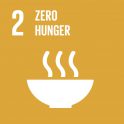 Ask:
Ask:
Have you ever had to skip a meal for any reason?
What did that feel like?
Imagine that you were given the job of making sure everyone had enough food.
What are the first three things you would do?
Why would you choose those as your first actions? - Good Health and Well-Being.
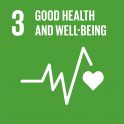 Ask:
Ask:
List all the people and services that our family uses to help us stay healthy and feel our best.
(Examples might include doctors’ offices, dental visits, gym memberships, grocery stores, etc.)
What would happen if we didn’t have those things?
How do you think it would affect us over time? - Quality Education.
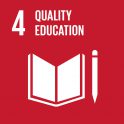 Ask:
Ask:
What do you think a good education should include?
What are the best things about your school?
Imagine that you could design your perfect school.
What would it be like?
What classes would be taught there?
- Gender Equality.
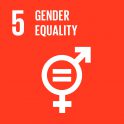 Ask:
Ask:
Do you believe that there are certain colors, toys, hobbies, or activities that are “for boys” or “for girls?”
When someone talks about something being “girly,” what do they mean by that?
What does it mean to “be a man?”
Who do you think has more opportunities or authority in your community — men and boys, or girls and women? Why? - Clean Water and Sanitation.
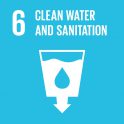 Ask:
Ask:
Imagine that we turned on our faucets one day and nothing came out. List all the things we do each day that would be affected.
Have you ever used an outhouse or latrine?
Have you ever had to carry water a long distance?
What were those experiences like? What would it be like to do them every day? - Affordable and Clean Energy.
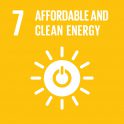 Ask:
Ask:
List all the things in our home that use energy/electricity to work effectively. How many of them do you use every day?
Do you know anything about different types of energy, like natural gas, coal, solar, and wind power?
What have you heard or learned about them?
Do you have an opinion about which is best, and why? - Decent Work and Economic Growth.
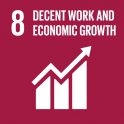 Ask:
Ask:
What do you think “decent work” or a “good job” means?
If someone works a full-time job, what do you think they should be able to afford on their wages?
A home? Transportation? Food and clothing?
What kind? - Industry, Innovation and Infrastructure.
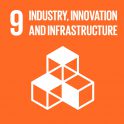 Ask:
Ask:
“Innovation” means coming up with new ideas and new ways to do things. Have you ever done something innovative? What was it?
Do you think that it’s important to help people invent new things and innovate, even if they fail?
Why or why not?
How can innovation make the world a better place? - Reduced Inequalities.
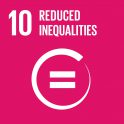 Ask:
Ask:
Have you ever seen someone treated differently from others around them because they were different in some way?
Have you ever been treated that way? What happened?
What do you think it would look like for everyone to be “equal?”
How would the world, or your community or school, be different than it is now? - Sustainable Cities and Communities.
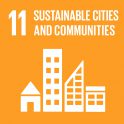 Ask:
Ask:
What do you think it means for something to be “sustainable?”
List the things that we do in our home and community to help move towards sustainability.
What are some areas where we could improve?
What do you think we should do differently? - Responsible Consumption and Production.
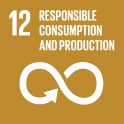 Ask:
Ask:
Do you think that we have too many things, just enough things, or not enough things?
Why?
What would you want more or less of?
Besides buying new items, what are some other ways that we could meet our needs? - Climate Action.
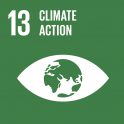 Ask:
Ask:
What do you know about different climates? How does climate affect the way plants and animals grow and thrive?
Scientists recently found prehistoric super-viruses in melting permafrost. That’s one interesting development of a change in climate. Imagine that climates around the world suddenly changed drastically overnight. What else do you think might happen? - Life Below Water.
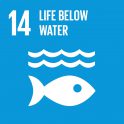 Ask:
Ask:
What are some things you know of that might threaten life in the oceans?
Why is that important?
Imagine you were going scuba-diving.
What would you most want to see? Least want to see?
What one souvenir would you want to be able to bring back to land with you? - Life on Land.
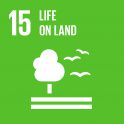 Ask:
Ask:
Do you know the difference between extinct, endangered, threatened, and vulnerable animals?
Name some animals that are extinct or endangered.
Why do you think endangered species are a concern for people around the world?
Can you name some reasons why the world is losing much of its forestation?
Why do we need forests? - Peace and Justice/Strong Institutions.
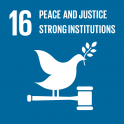 Ask:
Ask:
What do you think “justice” means?
Is justice the same thing as equality or fairness? Why or why not?
What would it look like to have total peace:
In our home? At your school? In our community? In our country? In our world? - Partnerships for the Goals.
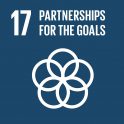 Ask:
Ask:
Why do you think including “partnerships” is important for working on long-term, large-scale goals like these? What kind of behavior would a good partner show?
John F. Kennedy said, “A man can be as big as he wants. No problem of human destiny is beyond human beings.” What do you think this quote means?
For more resources you can use to explore the Global Goals with your family, check out the Global Goals Parent Guide.
